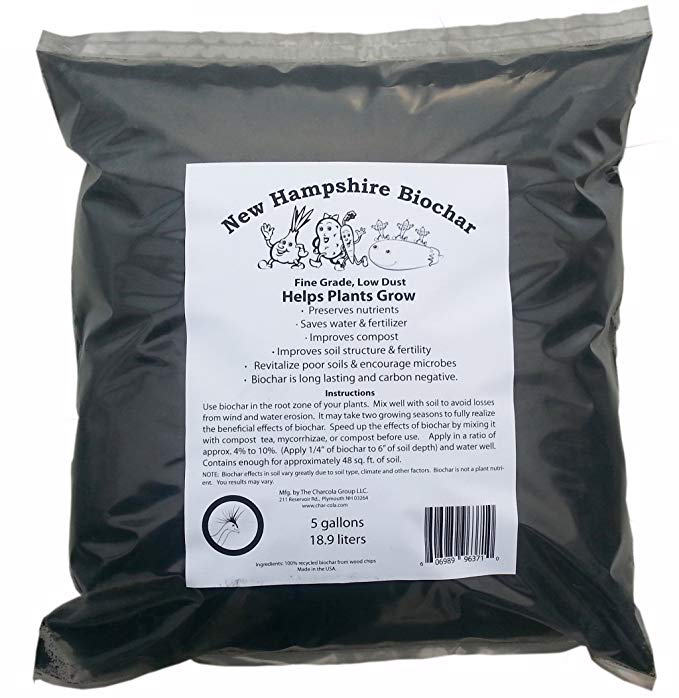- Make sure this fits by entering your model number.
- Improves soil structure
- Improves crop yields
- Saves on fertilizer & water
- Increases soil microbial biodiversity and biomass
- Raises Cation Exchange Capacity (CEC)
New Hampshire Biochar helps soils retain nutrients and water. Plants and vegetables have a greater chance for strong growth that produces nutrient rich food. If used agriculturally, or on lawns, it can prevent nutrient runoff into rivers and streams. Biochar binds nitrogen so emissions of nitrous oxide (a potent greenhouse gas) are also be reduced. Turning waste biomass into biochar also reduces methane (another potent greenhouse gas) generated by the natural decomposition of the waste. Between 20% to 40% of the carbon in the original biomass is locked up in the soil for thousands of years, helping to slow down climate change. Use biochar in the root zone of your plants. Apply in a ratio of 5%-10%. Mix well with soil to avoid losses from wind and water erosion. It may take two growing seasons to fully realize the beneficial effects of biochar. Speed up the effects of biochar by mixing it with manure tea, mycorrhizae, or compost before use. We strongly recommend that you have your soil tested. If your soil is deficient in nutrients, biochar will not make up for these deficiencies. For best results, you should amend your soil with the appropriate nutrients as determined by your soil test. Biochar is a special charcoal made by heating biomass in the absence of oxygen. Our biochar is made in New England from woodchips. The excess energy is captured for electricity production. We became interested in biochar from a 2008 article in National Geographic about Terra Preta del Indio. We were fascinated that something so ancient could have an potentially larger impact today on soil health, food production and the environment. After following interest and research we founded the Charcola Group in 2013. Since then we have been trying different biochars in many applications from kitchen composting to garden trials.

